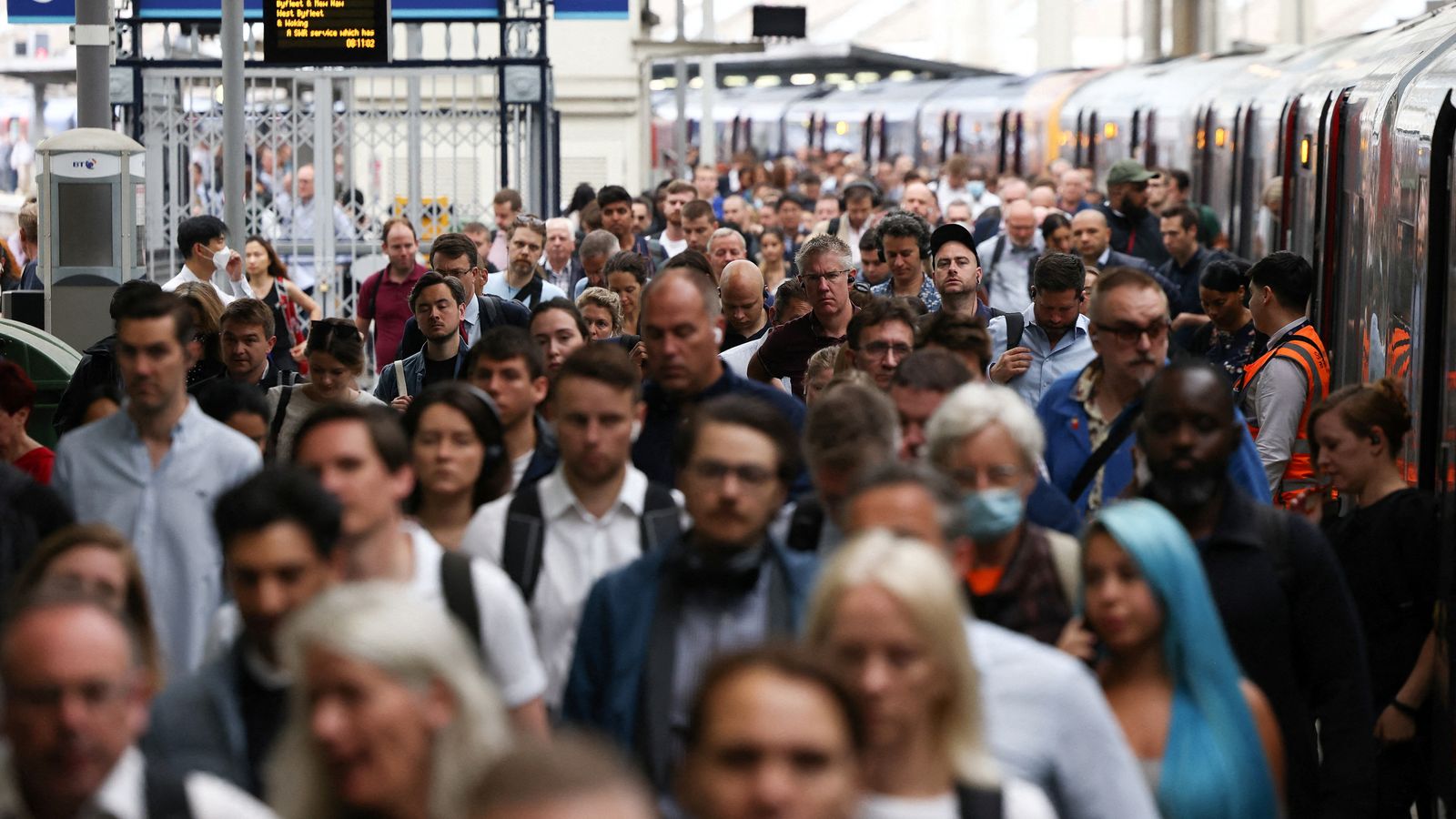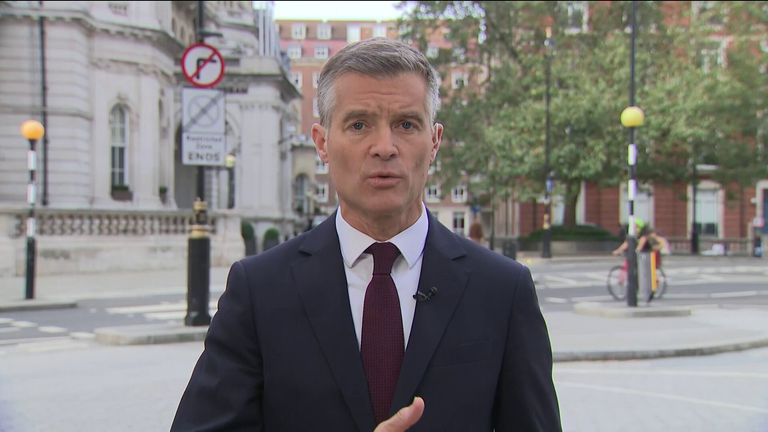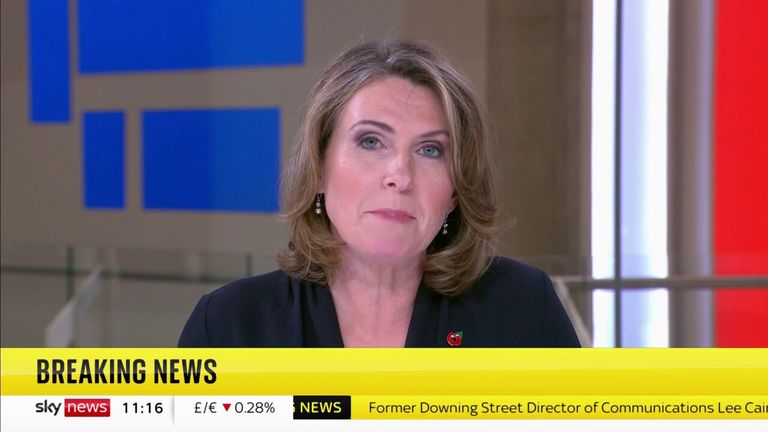The government has cancelled rail industry plans for the mass closure of ticket offices in England, saying they failed to reach the “high threshold of serving passengers”.
The Rail Delivery Group (RDG) announced over the summer that it planned to shut almost all of the nation’s 1,007 train station outlets in an effort to reduce costs after a post-COVID fall in passenger numbers.
Ministers had previously backed the proposals, despite concerns from unions and charities over the impact on vulnerable passengers such as disabled people.
But in a statement given to Sky News this morning, Transport Secretary Mark Harper confirmed he had asked train operators to “withdraw their proposals” following a public consultation.
A rail company source told the PA news agency there was “quiet fury” in the industry about the move.
They added: “The plan was signed off by civil servants and ministers. They’ve U-turned.”
The government announcement on Tuesday came just minutes after watchdogs Transport Focus and London TravelWatch said they had decided to oppose every single planned closure due to concerns over the impact on passenger accessibility.
Last week the cross-party transport committee of MPs also warned the plans went “too far, too fast” and described the consultation as lacking in transparency.
Prime Minister Rishi Sunak said in September that closing ticket offices was “the right thing for the British public and British taxpayers” because “only one in 10 tickets are sold currently in ticket offices”.
But Mr Harper said in his statement on Tuesday that the government had made clear to the industry throughout the consultation that its proposals “must meet a high threshold of serving passengers.”
He added: “We have engaged with accessibility groups throughout this process and listened carefully to passengers as well as my colleagues in parliament.
“The proposals that have resulted from this process do not meet the high thresholds set by ministers, and so the government has asked train operators to withdraw their proposals.
“We will continue our work to reform our railways with the expansion of contactless Pay As You Go ticketing, making stations more accessible through our Access for All programme and £350m funding through our Network North plan to improve accessibility at up to 100 stations.”
‘Serious overall concerns’
Transport Focus’s chief executive Anthony Smith said there had been around 750,000 responses to the consultation.
He said the watchdog decided to object due to “serious overall concerns” about the plans and questions over how the impact of closures would be measured.
Mr Smith added: “Some train companies were unable to convince us about their ability to sell a full range of tickets, handle cash payments and avoid excessive queues at ticket machines.
“Passengers must be confident they can get help when needed and buy the right ticket in time for the right train.”
The RDG, which represents rail companies, defended its proposals as being an attempt to balance the “changing needs of customers” with the “the significant financial challenge faced by the industry” post-COIVD.
Chief executive Jacqueline Starr said: “While these plans won’t now be taken forward, we will continue to look at other ways to improve passenger experience while delivering value for the taxpayer.
“Our priority remains to secure a vibrant long-term future for the industry and all those who work in it.”


